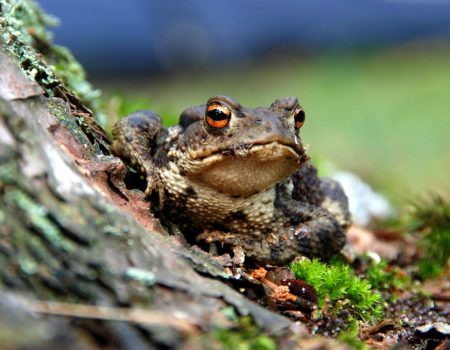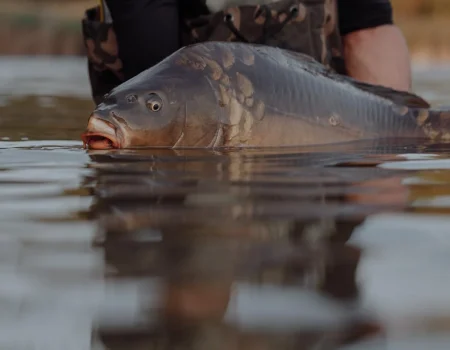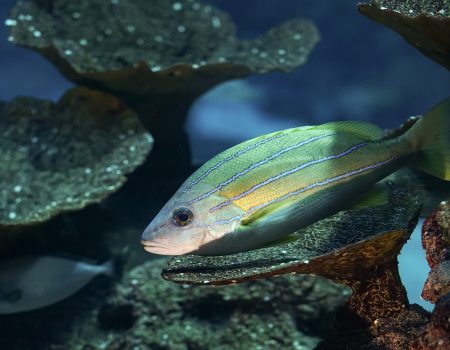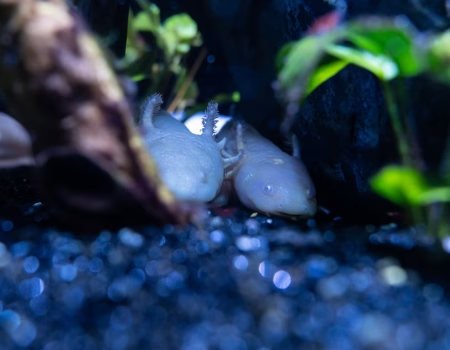You’ve probably seen pictures of those adorable, smiling amphibians called axolotls and thought, “I need one!”
They’re fascinating, unique, and surprisingly low-maintenance compared to other pets. But is owning an axolotl really as simple as it seems?
Let’s explore the ups and downs of having these aquatic companions so you can decide if an axolotl is the right fit for you.
What Makes Axolotls a Great Pet?

Axolotls, also known as Mexican walking fish, have a lot to offer. From their intriguing appearance to their minimal care requirements, they’ve become a favorite among pet enthusiasts. Here’s why:
They’re Easy to Care For
One of the biggest perks of owning an axolotl is how low-maintenance they are compared to other exotic pets. While they do need a proper setup, their needs are straightforward:
- Tank Setup: A 20-gallon tank works perfectly for one axolotl. They need cool, clean water, and a simple filter to maintain water quality.
- Diet: They thrive on a diet of earthworms, pellets, and occasional treats like frozen bloodworms.
- Cleaning: Weekly water changes of 20-30% are usually enough to keep their environment healthy.
A healthy female axolotl can produce between 300 and 1,000 eggs in a single spawning event, depending on her size and health.
This makes them perfect for people who want an exotic pet without the overwhelming responsibilities.
They Look Fascinating
Let’s face it—axolotls are adorable. Their permanently “smiling” faces, feathery gills, and range of colors (like wild type, leucistic, and albino) make them a joy to watch. Their quirky movements and behaviors can keep you entertained for hours.
They Have Unique Personalities
Axolotls might not cuddle like a dog or purr like a cat, but they’re far from boring. Many owners say their axolotls recognize them and come to the glass when they’re nearby. Their curious and calm nature adds a relaxing vibe to any home.
What Are the Challenges of Owning an Axolotl?
While axolotls are relatively easy pets, there are some downsides you need to know before committing. These challenges might not be deal-breakers, but they’re important to consider.
Axolotls can grow to lengths of 6 to 18 inches (15 to 46 cm), with an average size around 9 inches (23 cm) for adults.
Temperature Sensitivity
Axolotls are cold-water animals, so their tank needs to stay between 60-64°F (16-18°C). If your home gets too warm, you’ll need a chiller to maintain the right temperature. This can be expensive, and fluctuating temperatures can stress or harm your axolotl.
Tank Setup Costs
The initial cost of setting up an axolotl tank can be higher than you expect. You’ll need:
- A proper-sized tank (at least 20 gallons).
- A reliable filter to handle waste.
- Substrate like sand (avoid gravel, as they can swallow it).
- A water testing kit to monitor pH, ammonia, and nitrites.
These initial expenses can add up, so it’s something to budget for.
They’re Not Handle-Friendly
If you’re looking for a pet you can interact with physically, an axolotl might not be the best choice. Their skin is delicate and can be harmed by handling. They’re better admired in their tank rather than being touched or picked up.
Adult axolotls typically weigh between 2 to 10.5 ounces (60 to 300 grams) depending on their age and health.
Key Considerations for Axolotl Owners
Understanding the pros and cons of axolotl ownership is just part of the story. To truly succeed, you’ll need to consider a few more aspects of their care and lifestyle.
Long Lifespan
Axolotls can live for 10-15 years with proper care. This means you’re making a long-term commitment. If you’re unsure about maintaining their habitat and care routine for that long, they might not be the best choice.
Water Quality Matters
Axolotls are highly sensitive to water conditions. You’ll need to test the water regularly for:
- Ammonia and Nitrites: Both should be at zero.
- Nitrates: Should stay below 20 ppm.
- pH: Ideal range is 6.5-7.5.
Investing in a quality water testing kit and being diligent about water changes is crucial.
Feeding Habits
Feeding an axolotl is straightforward but does require some planning. Earthworms are a staple, but you’ll need to ensure they’re from a clean source to avoid contamination. Axolotls can also be picky eaters, so finding the right pellets or frozen foods might take some trial and error.
Compatibility with Other Pets
Axolotls don’t usually mix well with other fish or tank mates. Fish can nip at their gills, and axolotls might see smaller creatures as food. If you want a single-species tank, axolotls are perfect. Otherwise, they might not suit your aquarium plans.
Who Should Own an Axolotl?
Axolotls are a great match for certain types of pet owners. If you fall into one of these categories, they might be the perfect addition to your life:
- First-Time Exotic Pet Owners: If you’re new to keeping unique pets, axolotls are a good starting point because of their simple care needs.
- Aquarium Hobbyists: Already familiar with maintaining tanks? Adding an axolotl to your setup is a fun and rewarding challenge.
- Busy Individuals: If you can’t commit to a high-maintenance pet, the minimal daily needs of an axolotl make them a great choice.
When an Axolotl Might Not Be the Right Choice
On the flip side, axolotls aren’t for everyone. You might want to reconsider if:
- You Want Frequent Interaction: Axolotls aren’t interactive like dogs or cats.
- You Can’t Keep Up with Water Maintenance: Poor water quality can quickly harm or kill them.
- Your Home is Too Warm: If you don’t have air conditioning or a chiller, keeping their tank cool can be challenging.
Tips for First-Time Axolotl Owners
If you’ve decided to bring an axolotl into your life, here are some practical tips to set you up for success:
- Start with a Large Tank: A bigger tank is easier to maintain and gives your axolotl plenty of space.
- Cycle Your Tank Before Adding Your Axolotl: Cycling establishes beneficial bacteria that keep ammonia and nitrite levels safe.
- Stick to a Routine: Regular feeding and water changes will keep your axolotl happy and healthy.
- Research Breeders or Sellers: Always get your axolotl from a reputable source to ensure they’re healthy and ethically raised.
What’s the Final Verdict on Owning an Axolotl?
Owning an axolotl can be an incredibly rewarding experience if you’re prepared for the commitment. These quirky creatures bring joy and intrigue to any home, but they also come with specific needs that require attention.
If you’re up for the challenge of maintaining their environment and meeting their unique requirements, an axolotl could be the perfect pet for you. Just remember, it’s a long-term relationship, so take the time to assess your lifestyle and ability to care for them properly.
Are you ready to welcome an axolotl into your life? Start planning their perfect habitat, and you’ll soon enjoy the companionship of one of the most unique pets out there.
References
What are some potential downsides to owning a pet axolotl? – Quora
The Cons of Keeping Axolotls – Caudata.org
Axolotls as Pets – The Spruce Pets
Is It Okay to Have an Axolotl as a Pet? – The Doorstep
Are Axolotls Good Pets? – PBS Pet Travel
Disclaimer
This content on Bagrica is for informational purposes only. Consult a professional for pet care or farming advice. Bagrica is not liable for any actions taken based on this information.







No Comment! Be the first one.